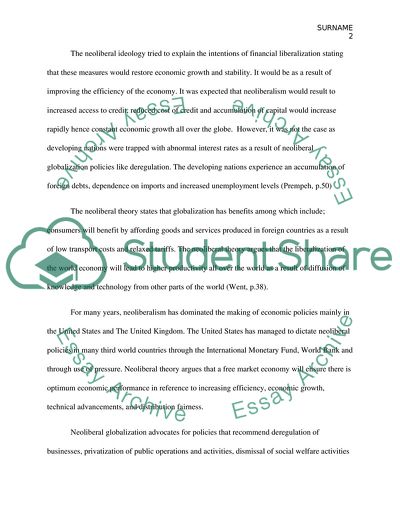Cite this document
(Business and Politics: Neoliberal Globalization Essay Example | Topics and Well Written Essays - 1500 words, n.d.)
Business and Politics: Neoliberal Globalization Essay Example | Topics and Well Written Essays - 1500 words. https://studentshare.org/politics/1850175-busniess-and-politics
Business and Politics: Neoliberal Globalization Essay Example | Topics and Well Written Essays - 1500 words. https://studentshare.org/politics/1850175-busniess-and-politics
(Business and Politics: Neoliberal Globalization Essay Example | Topics and Well Written Essays - 1500 Words)
Business and Politics: Neoliberal Globalization Essay Example | Topics and Well Written Essays - 1500 Words. https://studentshare.org/politics/1850175-busniess-and-politics.
Business and Politics: Neoliberal Globalization Essay Example | Topics and Well Written Essays - 1500 Words. https://studentshare.org/politics/1850175-busniess-and-politics.
“Business and Politics: Neoliberal Globalization Essay Example | Topics and Well Written Essays - 1500 Words”. https://studentshare.org/politics/1850175-busniess-and-politics.


